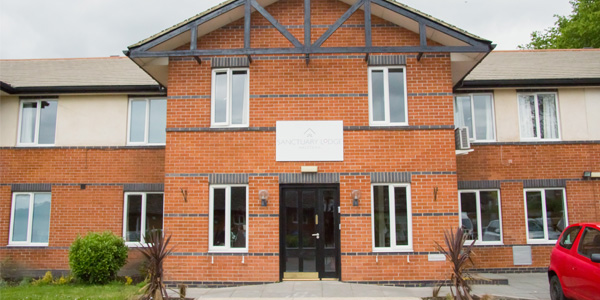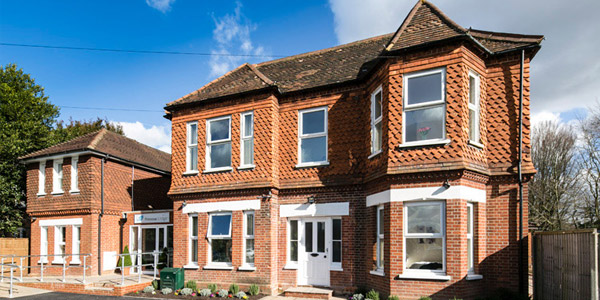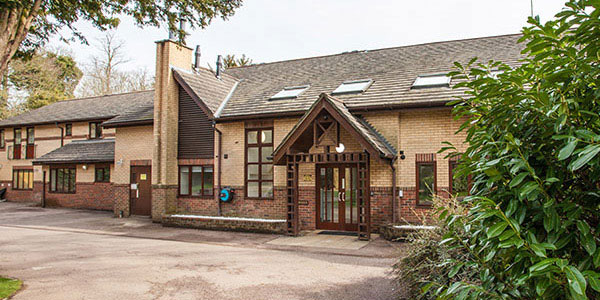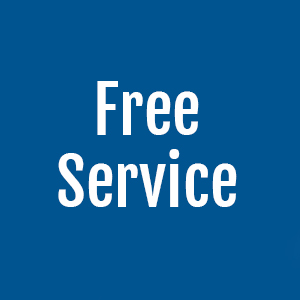Alcohol & Drug Rehab in Islington
Addiction Helper in Islington offers a variety of treatment options for the recovery from alcoholism, drug addiction, alcohol dependence or drug use disorder. The London Borough of Islington is in London, England. A large portion of this London borough forms Central London. The London Borough of Islington was created by the merger of Finsbury and Islington boroughs. The administrative headquarters of the London Borough of Islington is in Islington.
If you or a loved one are living in a suburb, district, neighbourhood or area of Islington, London and are not sure if there is a provision of local drug and alcohol treatment services which manages drug intoxication and withdrawal symptoms including medical alcohol and drug withdrawal then call us. Our experienced addiction counsellors will help you find the right recovery process tailored to your addiction treatment needs.

Liberty House Clinic is a fully furbished detox and rehabilitation facility…
- Private
- Holistic Treatment
- Award Winning
- Residential
Featured Rehabs
Sanctuary Lodge is a state of the art detox and rehabilitation facility, se…
At Primrose Lodge we genuinely care that our patients make a full recovery …
Banbury Lodge is a private UKAT rehab facility based in Banbury, Oxfordshir…
-
- 12 Step
- Group Setting
- Free
- Outpatient
-
- 12 Step
- Group Setting
- Free
- Outpatient
-
- 12 Step
- Group Setting
- Free
- Outpatient
-
- 12 Step
- Group Setting
- Free
- Outpatient
-
City of London Therapy Centre
45 Central Street
lslington, EC1V 8AB0 review- 12 Step
- Group Setting
- Free
- Outpatient
-
- 12 Step
- Group Setting
- Free
- Outpatient
- Load More
Drug & Alcohol Rehab Services in London
- A
- B
- C
- D
- E
- F
- G
- H
- I
- J
- K
- L
- M
- N
- O
- P
- Q
- R
- S
- T
- U
- V
- W
- X
- Y
- Z
What Is Rehab?
Residential rehabilitation – often abbreviated to “rehab” – describes the process by which an addict is treated at a dedicated facility, and is also the name given to such a facility itself. In rehab, patients typically undergo two main phases of treatment:
Detoxification (“detox”) and withdrawal, with assistance from a medical team. They may include the provision of certain medicines to alleviate the worst effects of withdrawal symptoms.
Therapy, the second part of a wholesome rehab treatment, is designed to reveal and address the root cause/s of their addiction.

Combined in a unique personalised treatment plan for each patient with other elements, including dietary and fitness regimes into one holistic approach, takes place in a secure, tranquil, aesthetically attractive and confidential setting. It is perfectly conducive to introspection and contemplation on the part of the patient who is thus able to focus wholly on their recovery.
There is a broad consensus that rehab is the most effective approach to treating addiction, in terms of its ability to provide a platform upon which a patient can build a permanent recovery. The combined focus on both short- and long-term challenges, under one roof and in one cohesive treatment programme, generally has a more positive outcome than other treatment models. As a result in mainstream culture “rehab” has now effectively become synonymous with addiction treatment.
How Can I Get Someone into Rehab?
If you are suffering from an addiction and are ready to acknowledge your condition and reach out for help, it is important not to waste any more time before investigating private options. They take pride in easy access to initial assessment and most in the area and beyond can admit you or a loved one suffering from addiction within 24 hours of this assessment.
It’s near impossible to treat somebody for an addiction who is not willing to be treated. However, if someone you love is struggling with an addiction, and you are conscious that for the aforementioned reasons time is a factor, you may despair that they are not showing themselves ready to own up to their addiction and ask for help.
We can assist at this point, by engaging with you to discuss arranging an intervention or other tactics that you can try with the intention of getting them to acknowledge their condition. If you yourself are struggling with addiction and are ready for help we can assist you in making the necessary preparations ahead of a stay in rehab. Either way, do not let more time go by: call today to speak with an addiction specialist about what private options are at your disposal.
Advantages of Private Rehab
Private rehab provides a peaceful, secure, pleasant and confidential setting far removed from those temptations, such as pubs and off-licences, drug dealers, and easily renewable prescriptions. Within the private inpatient facility, you can focus completely upon your recovery and your well-being.
Upon entering rehab, you will be assessed by medical professionals so they can get a full understanding of your condition and the nature and severity of your addiction, and draw up an individualised treatment plan for you prior to your embarking upon the detox phase. Private rehabs offer 24/7 monitoring during the perilous times of physical detox.
Once you move into therapy phase, during which you will have access to different therapy models, CBT, DBT, music, art, and other professionally acknowledged therapies are designed to get to the root causes of your addiction and to provide you with psychological defence mechanisms against relapse. Throughout your stay, as part of your individualised treatment programme, you will receive a bespoke fitness schedule, and nutritious meals in accordance with a tailored dietary plan (on the basis of “healthy body, healthy mind”).
At the end of your treatment programme, you will leave rehab for the outside world clean of substances of abuse and equipped with the aforementioned defences against relapse. However, this does not mean that you will be “cured” of your addiction: recovery is an ongoing process which requires dedication and constant attention. As a result, you will receive free aftercare for up to a year after the completion of your treatment programme, to give you an extra layer of support during the crucial next phase of your recovery.
What Does Rehab Cost in Islington?
The cost of private rehab can vary dramatically from one rehab to another, with a host of factors adding complexity such as which optional extras may be requested. As a rough guide, standard costs for rehab in England and Wales range from between £5,500 and £11,000 per month, though the cheapest rehab treatment can start from as little as £834 per week.
Islington NHS Addiction Treatment Options
You may feel for any of a variety of reasons – including concerns about cost – that at this point in time private rehab is not an option you can consider. If this is the case it is important not to give up hope: an assortment of NHS and charity resources can be found in and near Islington, which may help you manage your addiction or even attempt to overcome it altogether. Contact your GP to make an appointment to discuss which of these resources may be available to you.
Advantages of NHS Treatment
Although there are certain problems associated with seeking treatment from the NHS, as have been mentioned previously, it’s important to recognise that there are advantages to taking the NHS route. The most obvious of these is, of course, cost: NHS services are free at the point of use.
The NHS also has a geographical advantage in that it operates across the country while some rehabs are a long way away from Islington (though this may, in fact, be an advantage for those wishing to be as far as possible from temptation). NHS services are typically of a high standard – though quality does vary from one NHS trust to the next, as do waiting times as noted above.
Addiction Support Groups
A number of organisations exist across the country to provide assistance to recovering addicts, and some of these operate a support group model. Support groups are groups of individuals who are themselves recovering addicts – some only recently free from addiction, while others may have been clean for many years.
They come together at regular meetings to give and take mutual support: sharing stories of addiction, giving advice on how to resist relapse, showing solidarity and sympathy when group members are struggling, and providing the simple companionship which can mean so much in times of difficulty and loneliness.
The most famous support group organisation, and the one on which most others are modelled, is Alcoholics Anonymous (AA) which was founded in 1935 and runs on a 12-step programme of personal and spiritual development, with one of the steps being a recognition that a higher power – such as God – can assist with an alcoholic’s recovery.
Narcotics Anonymous (NA), founded in 1953 and based directly upon the AA model, is the second-largest support group organisation worldwide and caters to recovering drug addicts specifically. In a similar vein, but supporting those recovering from addictions to specific substances, are Cocaine Anonymous (CA), Heroin Anonymous (HA), Marijuana Anonymous (MA) and Crystal Meth Anonymous (CMA), all of which operate 12-step programmes.
Types of Counselling

Some people who have completed a treatment programme in rehab want the security of ongoing professional assistance during the next phase of their recovery – even potentially for several years afterwards. On the other hand, some addicts who have not yet been through rehab, but who intend to do so and who wish meanwhile to manage their addictions, desire a similar level of professional health. For these two groups – and indeed for any recovering addicts with especially busy schedules who want the ability to access support as and when they require it, one especially useful model is individual counselling.
Private addiction counsellors work rather like regular psychotherapists, in that they can be seen by private appointment. This usually works perhaps on an ongoing – typically weekly – basis, or maybe less regularly. These professionals would be charging a fee per each appointment.
Private addiction counsellors can be found right across the UK – with a great many active in Greater London – offering a broad variety of therapy models and approaches to treatment. Usually such counsellors will be available only during set working hours but some may make themselves available in emergencies.
Other useful counselling methods include group sessions, family programmes and more. Aftercare sessions can also include a variety of these, making up a stable, trustworthy relationship while in your first year of recovery.
Reaching Islington in London
The borough of Islington is found in Inner London. Its neighbouring areas are Haringey, Hackney, Tower Hamlets, City of London, Westminster, and Camden, and it has 16 wards.
The Islington wards are: Barnsbury, Bunhill, Caledonian, Canonbury, Newington Green, Clerkenwell, Finsbury Park, Highbury East, Highbury West, Hillrise, Holloway, Junction, Mildmay, Saint Georges, Saint Marys, Saint Peters, Tollington. If you have to drive around the borough, keep in mind that there are a number of useful large roads to use for quicker access including the A1, the A501, the A503, Holloway Road and Seven Sisters Road. At the same time, if you consider using public transportation, the local stations are serviced by the London Underground (Angel, Arsenal, Highbury & Islington, Farringdon, etc.), London Overground (Canonbury, Crouch Hill, Upper Holloway, etc.), and National Rail (Old Street, Essex Road, Finsbury Park, etc.).
There are multiple opportunities for your relaxing rehab-focused outings. They may be part of the holistic therapies some rehabs in the area provide. Found in the borough are The Almeida, the puppet-focused Little Angel Theatre, and the so-called real-life equivalent of the Secret Garden – Islington’s garden squares especially Lonsdale Square.
How to Get to Liberty House Clinic from Islington
Liberty House Clinic is a fully furbished 18-bed drug and alcohol detox and rehabilitation facility in a peaceful, picturesque suburban setting in the heart of Luton. Its large, spacious grounds are the ideal place in which to address the key questions at the heart of recovery from addiction and to embrace its fully comprehensive rehabilitation programme focused on mental, physical and spiritual well-being.
To get to Luton from Islington by road, take Upper Street/A1 and head north, staying on the A1 up to the North Circular Road and the Great North Way. Merge onto the M1 and stay on the motorway until junction 10; then take the A1081 towards London Road; follow signage to the town centre.
For those preferring to travel by train, Luton is served by Thameslink; from Highbury & Islington take the Victoria Line to Kings Cross St Pancras, and then from London St Pancras take a train direct to Luton.
Liberty House Clinic
220 Old Bedford Road
Luton
Bedfordshire
LU2 7HP





